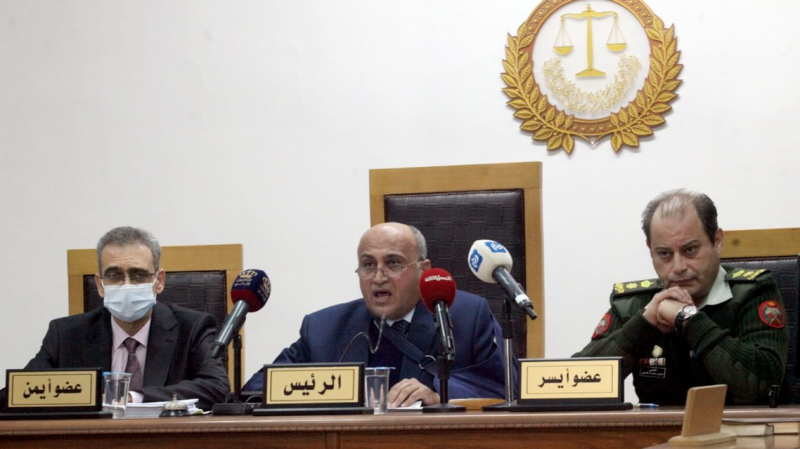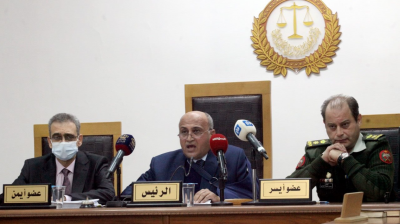The Jordanian State Security Court has concluded the case of the "largest drug factory" in Jordan, which was uncovered by Jordanian security agencies in 2018 but had been operational since 2009. The court held a public sentencing session on Monday, presided over by civil judge Dr. Nasser Salamet, alongside civil judge Muntasir Obeidat and military judge Major Safwan Al-Zoubi, with attendance from the military prosecutor Amjad Tadros and defense attorneys for the defendants.
**Lengthy Sentences**
The court convicted 11 individuals, including foreign nationals and local companies involved in establishing the drug factory on Jordanian soil. The court decided to impose a 30-year sentence of hard labor and a fine of 30,000 Jordanian dinars on six of them. The main defendant, who established the factory and employed various methods to manufacture narcotic materials from 2009 until his arrest in 2018, was also sentenced to 30 years of hard labor and a fine of 30,000 dinars.
The court sentenced five accomplices of the main defendant to 30 years of hard labor and a fine of 30,000 dinars each, while the remaining convicted individuals received sentences ranging from 5 to 15 years of hard labor. This also included two local companies.
The court dismissed the public lawsuit against one defendant who passed away during the case proceedings and reduced the sentence of another convict suffering from complete paralysis.
The military prosecutor demanded the maximum penalties stipulated by law against the convicts due to the severity of this organized crime targeting Jordanian society and individuals for the purpose of achieving public and private deterrence.
**Seizure of Materials and Assets**
The court ordered the confiscation of narcotic substances, chemical precursors, their components, necessary materials, machinery, tools, equipment, mixers, vehicles, and cash seized in this case. It confirmed the seizure of movable and immovable assets belonging to the criminals, including those related to the second defendant, who is a son and branch of the first convict and the deceased fourth defendant, as well as their families.
The court confiscated movable and immovable assets owned by the convicts since the start of their criminal project in 2009, confirmed travel bans against the convicts, and established the seizure of the assets of five companies and one factory involved in this case.
The court ordered the liquidation of two convicted companies and the closure of three institutions for one year, banning the convicts from establishing, registering, or managing any future institution or company, and directed the relevant official entities to communicate this prohibition. Additionally, it required the convicts and the convicted companies to equally cover the judicial and administrative costs.
**Pesticide Manufacturing as Cover**
In its ruling, the court noted that it was established in the case that the main defendant, along with his accomplices, executed their nefarious criminal project through organized methods with clear and defined goals, distributing roles among themselves. They began establishing several companies and individual enterprises in 2009, falsely claiming that their purpose was the production of chemical cleaners and agricultural pesticides as a cover for their illegal activities in manufacturing narcotic substances and producing, possessing, selling, and marketing them both domestically and internationally to achieve unlawful profit through trafficking, which they effectively implemented until they were apprehended by the competent authorities in January 2018.




